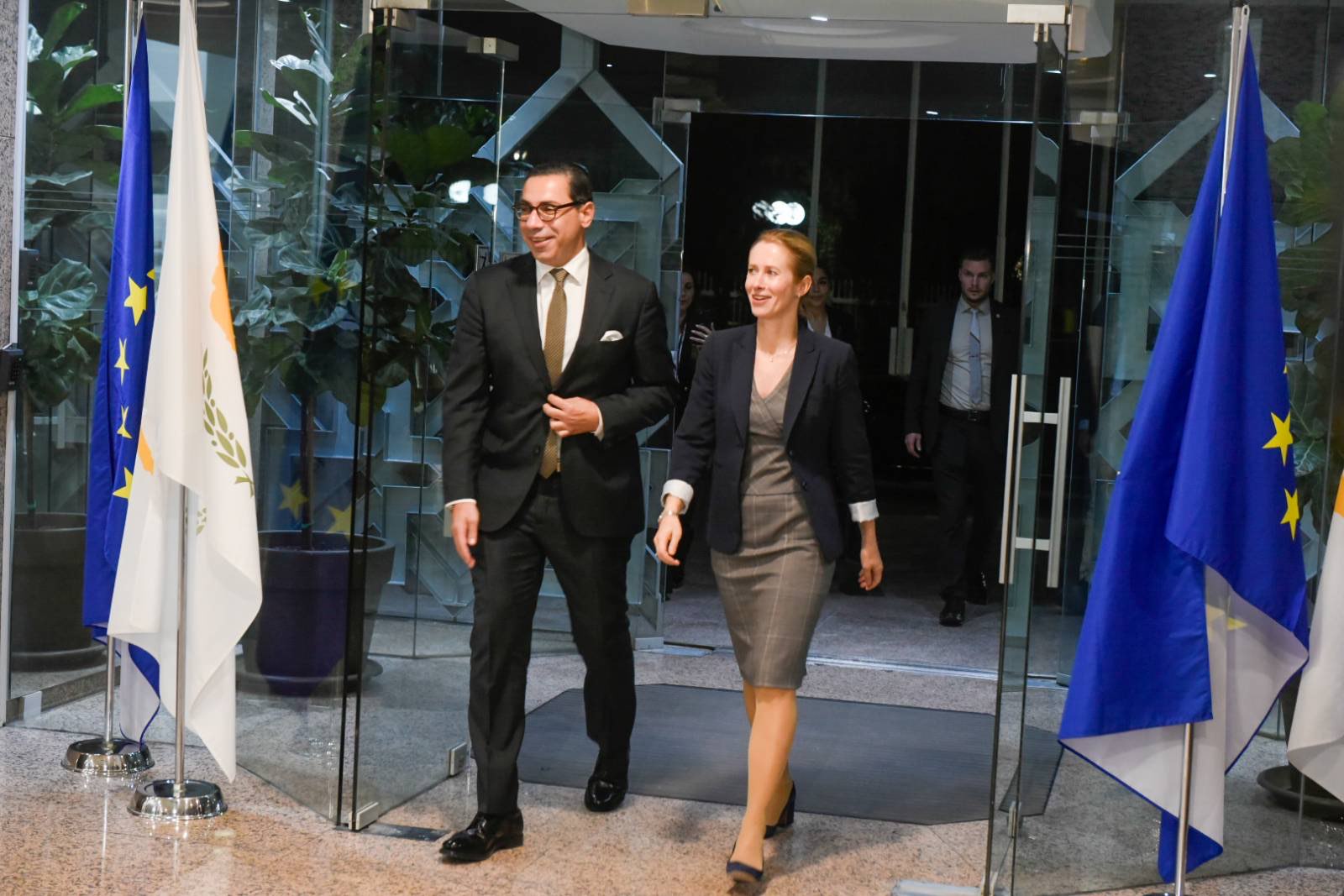President Nikos Christodoulides and Foreign Minister Constantinos Kombos on Wednesday both discussed relations between the European Union and Turkey with the bloc’s foreign affairs chief Kaja Kallas.
Kallas visited the island for talks ahead of Cyprus undertaking the Council of the European Union’s rotating presidency at the beginning of this year, and first visited Christodoulides at the presidential palace.
There, he told her that “any progress in Turkey’s accession process needs to be examined in connections with its obligations arising from Cyprus”.
He also made reference to “the importance of the relations Cyprus maintains with the countries of the region, such as Lebanon and Jordan”.
Kallas was quoted as having said that the Cyprus problem is “on the agenda of her contacts” abroad, and that Christodoulides’ “knowledge of issues concerning countries in the region, such as Lebanon and Syria, is valuable”.
Later on Wednesday, she met Kombos, who told her that “any progress” in relations between the EU and Turkey “depends on full respect for the sovereignty of and the sovereign rights of all EU member states”.
He added that “the further upgrading” of those relations “presupposes Turkey’s compliance with its Cyprus-related obligations and the resumption of and progress of negotiations on the Cyprus problem”.
Additionally, he made reference to Cyprus’ forthcoming holding of the Council of the EU’s rotating presidency, saying that the government is “ready to work closely with the institutions of the EU for a targeted and effective term”.
Kallas’ visit to Cyprus comes a day after the release of the European Commission’s latest annual report on Turkey, which among other things, criticised that “Turkey continued to advocate for a ‘two-state solution’ in Cyprus”.
This, it said, runs “contrary to relevant UN security council resolutions, stating that any process seeking a bizonal, bicommunal federation would not be successful”.
“The EU recognises only the Republic of Cyprus as a subject of international law in accordance with the relevant … resolutions and has stressed that any action to facilitate or assist in any way the international recognition of the Turkish Cypriot secessionist entity severely damages efforts to pave the way for formal settlement talks,” it said.
Turkey’s foreign ministry had reacted to the report, decrying its “inclusion of unrealistic, unlawful, and maximalist views held by Greece and the Greek Cypriot side”, and decrying its “ignorance of the legitimate concerns of Turkey and the Turkish Republic of Northern Cyprus”.
This, it said, “demonstrates once again that the EU is taking sides on the Cyprus issue and cannot contribute to efforts to resolve the Cyprus problem”.






Click here to change your cookie preferences